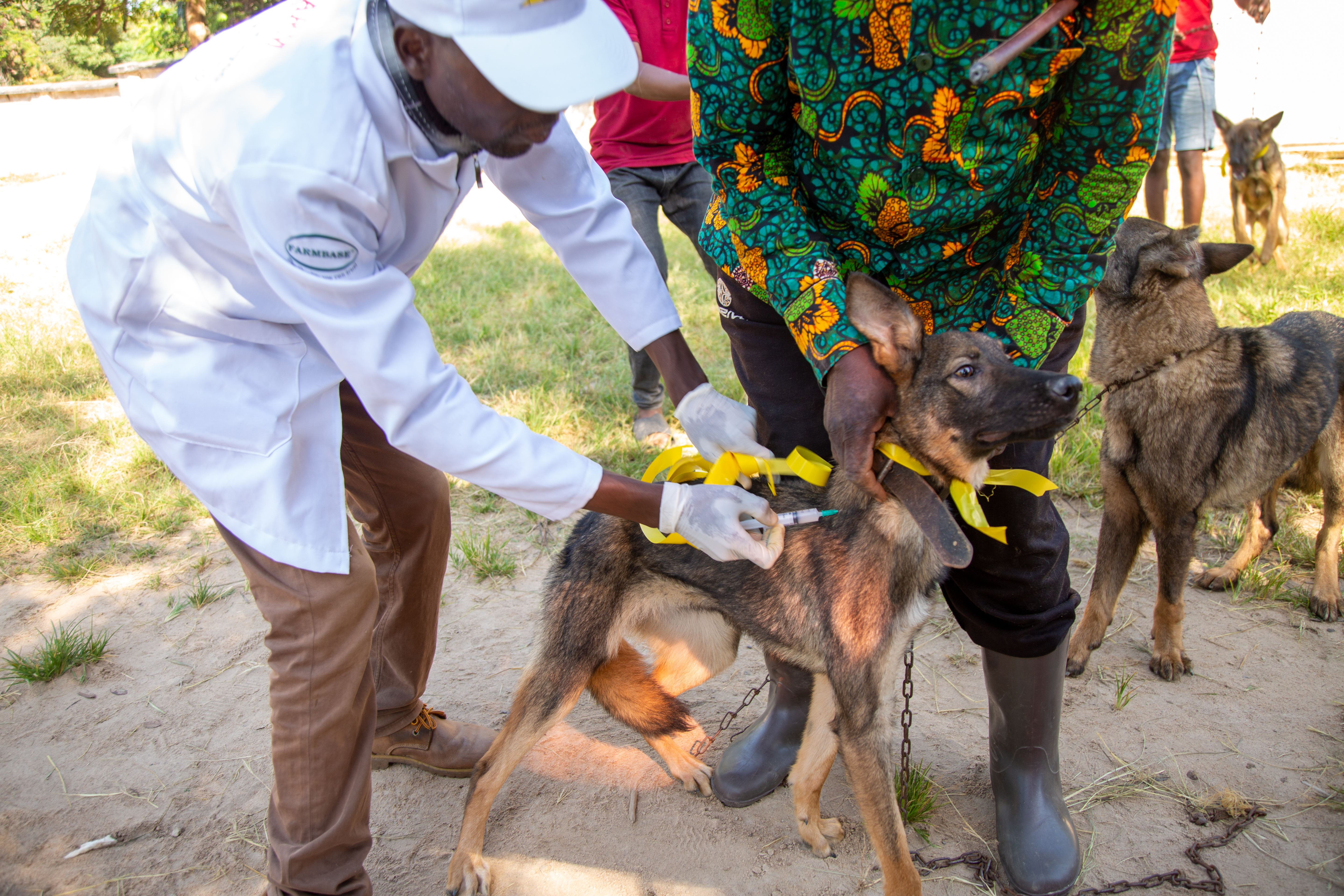
Principal Investigator: Kennedy Lushasi
Project leader/ Coordinator: Kennedy Lushasi
Project Administrator: Ritha Godfrey & Felix Brown
Funding Partner: University of Glasgow
Start date: Sept. 1, 2024
End date: Oct. 31, 2028

Scaling up One Health Systems: Implementation Research for Rabies Elimination in Africa - "SOS-Rabies"
The SOS-Rabies project is an implementation research initiative focused on rabies elimination in Africa, particularly in Tanzania. It is a collaborative effort between Ifakara Health Institute (IHI) and the University of Glasgow, running from September 2024 to October 2028. The project aims to reduce the rabies burden and strengthen One Health systems and capacity by improving vaccine access, intervention strategies, and health system resilience.
Why Rabies?
Rabies is a 100% preventable disease, yet it remains a significant public health challenge. It causes one death every nine minutes, with 40% of victims being children. The disease is primarily dog-mediated, accounting for 99% of cases, and disproportionately affects rural areas, where 80% of deaths occur. Prevention relies on two key interventions: mass dog vaccination (MDV) to stop disease transmission and post-exposure prophylaxis (PEP) to prevent fatal outcomes in humans.
The Role of Gavi's Vaccine Investment
To support global rabies control, Gavi, the Vaccine Alliance, included rabies in its Learning Agenda (2016-2020) and its Vaccine Investment Strategy (2020-2035), aiming to expand rabies vaccine access. This initiative is projected to save over 500,000 lives by 2035 in 67 low-income countries. Tanzania stands to benefit early by leveraging Gavi’s investment to expand access to PEP and strengthen rabies control programs. Through SOS-Rabies, Tanzania will generate lessons, address challenges, and develop best practices for effective rabies control, which will then be shared with other Gavi-eligible countries.
Objectives of SOS-Rabies
The project’s objectives focus on three main areas. First, data analysis and tool development will support tracking disease and vaccine demand & training packages to improve vaccine delivery. Second, monitoring and evaluation efforts will test interventions to understand their effectiveness and facilitate inter-sectoral workshops to improve impacts. Third, knowledge mobilization will ensure that findings are shared broadly, building a Community of Practice to support the intervention's impact in Tanzania and beyond.
How will SOS-rabies help?
Through these efforts, SOS-Rabies will synthesize epidemiological data to support implementation and M&E of interventions. The project will also facilitate Tanzania’s vaccine rollout through Gavi; generate evidence to optimize rabies interventions and policies; facilitate the success of Gavi's support for human rabies vaccine; and make Tanzanian roll out a model to guide Gavi support in other endemic countries.
How will SOS-rabies strengthen the Health System in Tanzania?
The SOS Rabies seeks to strengthen the Tanzanian health system, by promoting enhanced intersectoral collaboration between public health and veterinary sectors. Additionally, it will foster participatory learning, ensuring effective intervention implementation and dissemination.
By co-developing evidence-based tools, SOS-Rabies will support both human and animal health professionals in managing rabies more efficiently. The project will also leverage Integrated Bite Case Management (IBCM) to capture real-time rabies case data, improving vaccine supply chains and guiding mass dog vaccination campaigns.
Key Project Team Members
The SOS-Rabies team includes key experts from both Ifakara Health Institute and the University of Glasgow. The IHI team consists of Dr. Kennedy Lushasi (Principal Investigator), Mr. Joel Changalucha, Ms. Farida Hassan, Dr. Christian Tetteh, and Dr. Sambo Maganga, while the University of Glasgow team includes Prof. Katie Hampson (Co-Principal Investigator), Dr. Nai Rui Chng, Dr. Eleanor Rees, and Dr. Karen Fairlie-Clarke. The project is further supported by a 12-member expert advisory committee.
